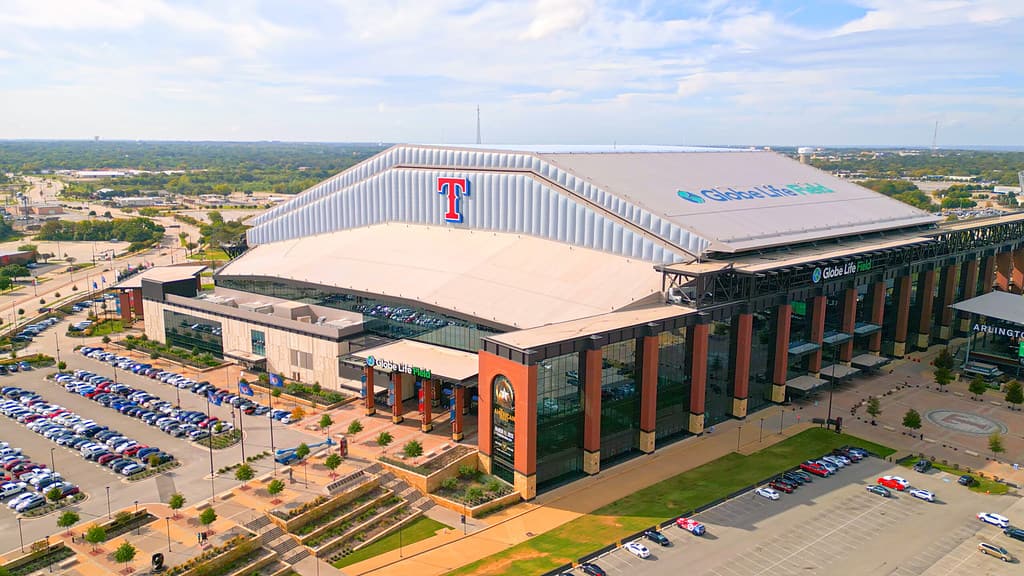Arbitration in baseball is a process that is used to resolve disputes between teams and players over salaries. It is a form of alternative dispute resolution that is used in place of going to court. The process involves a neutral third party, known as an arbitrator, who listens to arguments from both sides and makes a decision on what the player’s salary should be.
Arbitration is a common practice in professional sports, and it has been used in baseball since the 1970s. It was introduced as a way to help teams and players avoid lengthy and expensive court battles over salaries. Under the arbitration process, both the team and the player submit a salary figure to the arbitrator, and the arbitrator chooses one of the two figures as the player’s salary for the upcoming season. The decision is binding, meaning that both sides must accept the arbitrator’s ruling and cannot negotiate further.
Overall, arbitration in baseball is an important process that helps teams and players come to an agreement on salaries without resorting to court. It provides a fair and efficient way to resolve disputes and has become an integral part of the baseball industry.

Arbitration in Baseball
Definition
Arbitration in baseball refers to the process by which a player and a team negotiate and settle on a contract for the upcoming season. The process is used for players who have completed three to six years of Major League service time and are not yet eligible for free agency. The player and the team each submit a salary figure to an independent arbitrator, who then chooses one of the two figures as the player’s salary for the upcoming season.
Process
The arbitration process begins in the offseason, with the deadline for teams and players to submit their salary figures typically falling in January. The arbitration panel then hears arguments from both sides and chooses one of the two submitted figures as the player’s salary for the upcoming season. The decision is binding and cannot be appealed.
Benefits and Drawbacks
One of the benefits of arbitration for players is that it allows them to receive a raise from their previous salary, even if the team is not willing to offer one. It also provides a mechanism for players to receive fair compensation based on their performance and comparable players in the league. However, the arbitration process can also be contentious and lead to contract disputes between players and teams. Additionally, the salary figures submitted by both sides can sometimes be far apart, leading to tension and potentially damaging relationships between the player and the team.
Overall, arbitration in baseball is an important aspect of the collective bargaining agreement between the MLB and the MLBPA. It provides a mechanism for players to receive fair compensation and ensures that teams are not able to take advantage of players with less bargaining power.
The Arbitration Process
Arbitration is a method of resolving disputes between players and teams without going to court. In baseball, it is used to determine player salaries for those who are eligible. The arbitration process typically takes place in mid-January and involves a hearing where both the player and the team present their cases to an arbitrator.
Eligibility
To be eligible for salary arbitration, a player must have at least three years of Major League service time. However, there are some exceptions to this rule. For example, players with “Super Two” status, which is determined by a formula based on service time, are also eligible.
The Hearing
The arbitration hearing is where both the player and the team present their cases to an arbitrator. The player’s agent and the team’s general manager or legal representative usually attend the hearing as well. During the hearing, both sides will present evidence to support their case, such as the player’s statistics and comparable salaries for similar players.
Exhibits, such as graphs and charts, are often used to help illustrate the points being made. The hearing can last several hours, and both sides have the opportunity to cross-examine witnesses.
The Decision
After the hearing, the arbitrator will review all of the evidence presented and make a decision on the player’s salary for the upcoming season. The decision is usually based on the player’s performance over the past season and their expected production for the upcoming season. The arbitrator may also consider factors such as the player’s position, batting average, power, and home runs.
Some recent examples of players who have gone through the arbitration process include Gerrit Cole, Juan Soto, Francisco Lindor, David Price, and Aaron Judge. Teams such as the Athletics, Cubs, Guardians, Padres, Reds, Rockies, and White Sox have also had players go through arbitration.
Overall, the arbitration process is an important part of determining player salaries in baseball. It allows players to receive fair compensation for their performance, while also giving teams the ability to manage their payroll and stay within their budget. Some recent notable players who have received arbitration awards include Max Fried, Julio Urías, Josh Hader, and Rhys Hoskins. The New York Yankees are one team that has historically been willing to go to arbitration with their players.
Benefits and Drawbacks of Arbitration
Benefits
Arbitration in baseball provides several benefits to both players and teams. Firstly, it allows for a fair resolution of contract disputes between players and teams. Arbitrators are independent, neutral parties who consider the arguments and evidence presented by both sides to make a decision on the player’s contract figure. This ensures that both parties have a say in the process and that the decision is not biased towards one side.
Secondly, arbitration can benefit players who are in their arbitration-eligible years. These players have completed three years of MLB service time and are not yet eligible for free agency. Arbitration allows them to negotiate for higher salaries than the league minimum, and they can receive raises based on their past performance. Additionally, players who qualify as Super Two players can receive arbitration earlier than other players, which can be beneficial for their financial situation.
Drawbacks
Despite its benefits, there are also some drawbacks to the arbitration process in baseball. Firstly, the process can be time-consuming and stressful for both players and teams. The arbitration deadline is usually in the offseason, which can be a stressful time for players who are unsure of their future with their team. Teams also have to prepare for arbitration cases and may have to spend significant resources to do so.
Secondly, the arbitration process can be unpredictable. The arbitration panel considers several factors when making their decision, including the player’s past compensation, comparable players, and wins above replacement. However, the decision can still be difficult to predict, and players may not always receive the compensation they were hoping for.

Finally, arbitration can sometimes lead to a strained relationship between players and teams. The process can be adversarial, and players may feel that their team undervalues them or does not appreciate their contributions to the team. This can lead to tension in the clubhouse and may make it difficult for the player and team to negotiate future contracts or extensions.
Overall, while baseball arbitration provides several benefits to both players and teams, it also has some drawbacks. The process can be stressful and unpredictable, and it can lead to strained relationships between players and teams. However, it remains an important part of the collective bargaining agreement in Major League Baseball and will continue to be used in the future.
- Fenway Park Seating Chart: Best Seats To See the Red Sox - July 17, 2023
- What is RBI in Baseball: A Simple Explanation of The “Ribby” - July 3, 2023
- What is DFA in Baseball? A Term No Player Wants to Hear - July 3, 2023








